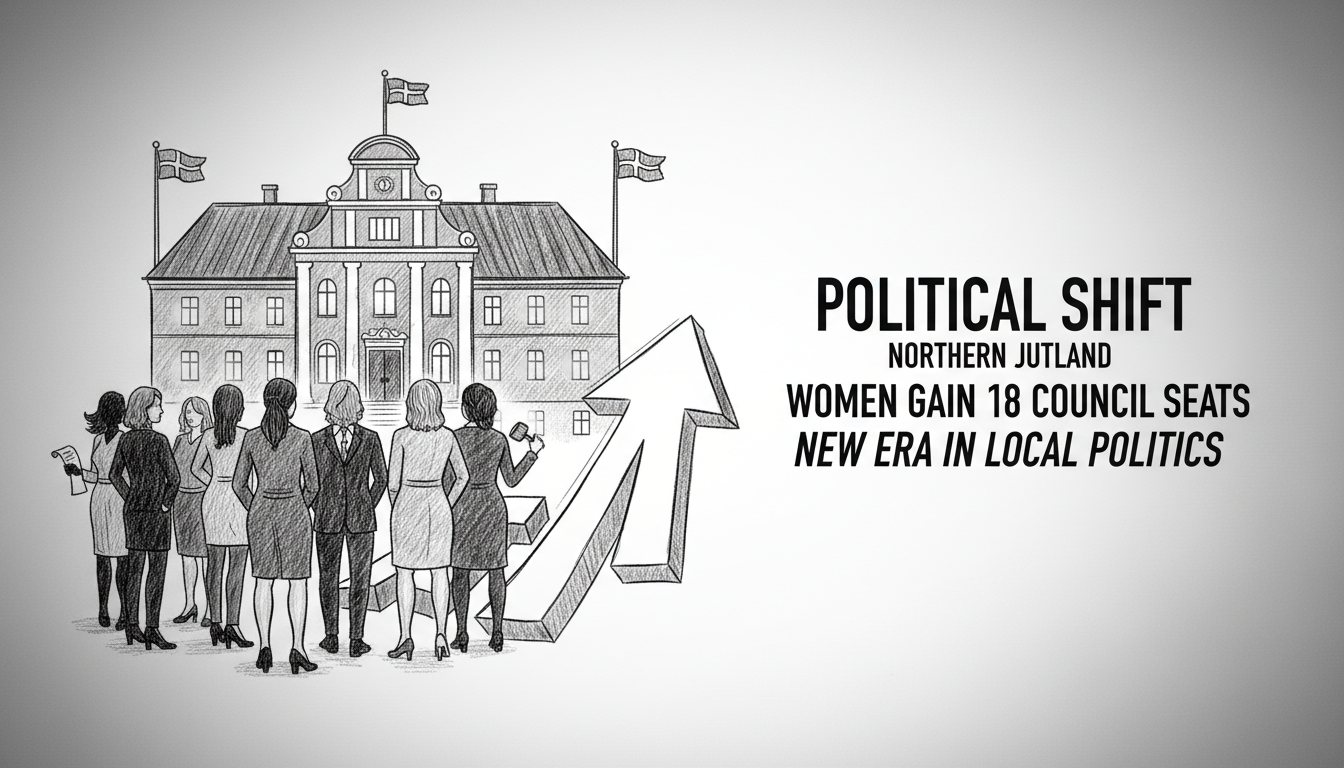Women are securing more political power across Northern Jutland's municipal councils following recent local elections. The region will see 18 additional female council members when new councils convene after the new year. This represents a substantial increase from 83 to 101 women holding council seats throughout the area.
The growth in female representation spans nearly all municipalities in Northern Jutland. This shift occurred despite men continuing to hold all mayoral positions in the region. Several newly elected women described the development as positive news for local governance.
Local elections in Denmark occur every four years, with citizens voting for municipal and regional councils simultaneously. Denmark's political system operates through proportional representation, which typically facilitates gradual changes in council composition. The current increase in female council members reflects broader Scandinavian trends toward gender-balanced politics.
Northern Jutland encompasses municipalities like Aalborg, Hjørring, Brønderslev, and Frederikshavn. These areas have historically shown varied patterns of gender representation in local government. The current gains suggest changing voter preferences and increased female political engagement across the region.
International readers should understand that Danish municipal councils hold substantial authority over local services. These include schools, elderly care, cultural facilities, and local infrastructure planning. Increased female representation could influence policy priorities in these key areas.
Scandinavian countries typically lead global rankings for gender equality in politics. Denmark currently ranks among the top ten nations for female parliamentary representation. The Northern Jutland results demonstrate how this national trend manifests at the local government level.
What practical difference might these changes bring? Research suggests gender-balanced councils often prioritize different policy areas. They frequently show increased attention to social welfare, education, and healthcare services. The new council compositions could shift budgetary allocations toward these sectors.
The political advancement comes as Denmark continues working toward gender balance across all governance levels. While women have achieved strong representation in national parliament, local government has seen slower progress. The Northern Jutland results indicate this may be changing in Denmark's regional municipalities.
Female political representation in Northern Denmark shows measurable improvement, but complete gender balance remains unfinished. The continued absence of women from mayoral positions highlights where further progress might focus. These leadership roles often serve as stepping stones to higher political office.
The changing composition of Northern Jutland councils reflects both voter behavior and candidate availability. More women appearing on ballots and winning elections suggests shifting cultural attitudes. It also indicates political parties are nominating more female candidates across the region.

